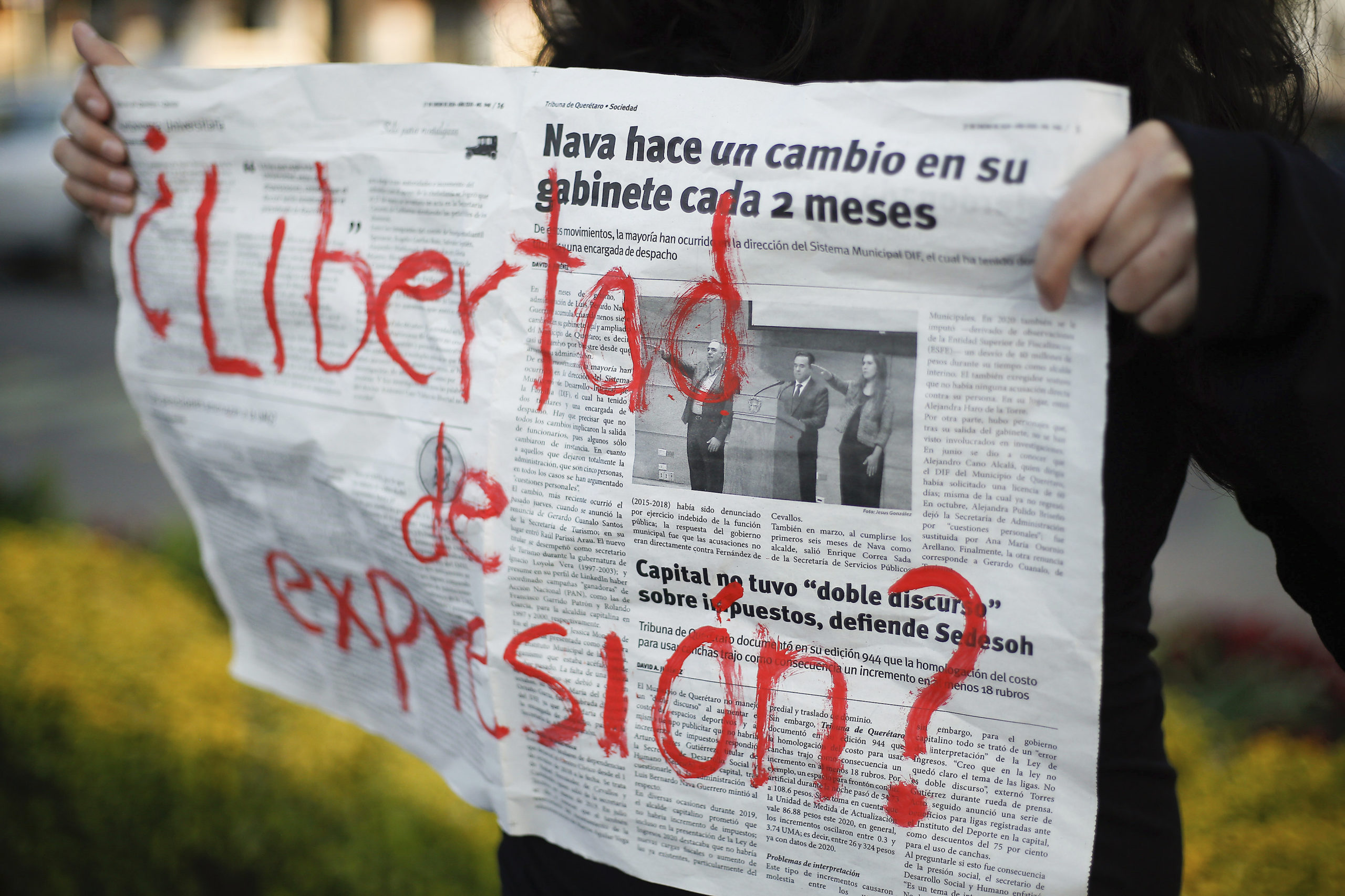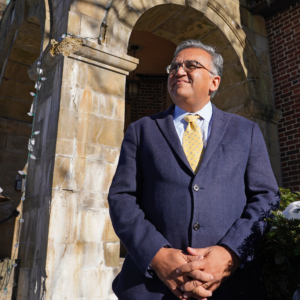
A protester holds a placard during a demonstration against the murder of the three journalists Jose Luis Arenas, Margarito Martinez and Lourdes Maldonado. From 2000 to date, ARTICLE 19 has documented 148 murders of journalists in Mexico, possibly related to their work
After reading Javier Garza Ramos’ most recent piece, I’ve grown fascinated by the history of Mexico’s local media. Overshadowed by the country’s national outlets, small-town publications played a critical role in demanding government accountability in the 1970s and ‘80s, and in ultimately removing Mexico’s ruling party, the PRI, from the presidency in 2000. It’s a captivating history, highlighting how journalism — and particularly, smaller outlets — serve democracy and accountability.
But today, Mexico’s local media are in danger, Garza Ramos reports. Editorial independence is now in a precarious position as city and state governments threaten to pull advertisements if coverage is unfavorable. And violence against journalists runs rampant throughout Mexico, but especially in small towns and medium-sized cities. In the first few weeks of 2022, at least seven Mexican journalists have been killed — a number that already matches that of the previous year.
President Andrés Manuel López Obrador has done little to address the increasing threats to journalists. Instead, he denounces journalists in his press briefings for launching investigations into his administration. “In Mexico today,” Garza Ramos writes, “a state governor, city mayor, police chief, drug boss, or petty criminal thinking about attacking a journalist for publishing something they do not like can have the certainty that they will get away with it. Why shouldn’t they? Even the president thinks that journalists are the enemy.”
Mexico isn’t the only country where journalists are labeled “enemies,” newsrooms are squeezed, and reporting can be a deadly task. From Kashmir to Hong Kong to Russia and beyond, journalism faces physical, political and, especially under authoritarian regimes, increasingly existential threats. Garza Ramos’ piece is the first in our new series, Reporting at Risk, stories by journalists who are managing to do vital independent reporting — often at great personal risk.
I hope you read along as we continue to highlight the extraordinary, important work of journalists working in hostile environments.
Wishing you all the best,
Natalie De Rosa
Assistant Editor, Nieman Reports
Recent Stories from Nieman Reports
 Don’t Look Away: Photojournalists are Documenting the Brutality of Russia’s War in Ukraine
Don’t Look Away: Photojournalists are Documenting the Brutality of Russia’s War in Ukraine
There are layers to bearing witness, from the war’s victims, to journalists in the field, to readers like you
 Dr. Ashish Jha on Bracing for the Pandemic’s Third Year
Dr. Ashish Jha on Bracing for the Pandemic’s Third Year
The leading public health expert discusses the press’ role in relaying public health directives, combating misinformation, and more
How Misinformation Helped Fuel a Public Health Crisis
A new book argues that Covid-19 also spurred an “infodemic” as governments censored critical public health information



